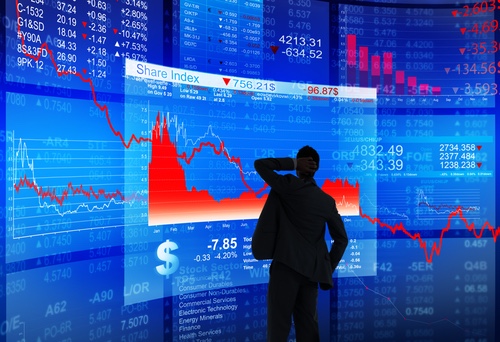Global markets are on edge as they face the potential ramifications of escalating geopolitical tensions related to the ongoing confrontation between Israel and Hamas.
Following Hamas’ unprecedented attack that resulted in the tragic loss of over 1,300 Israeli lives, the Israel Defense Forces are making preparations for a ground invasion.
Israel has also signaled its intention to allow Gaza residents to relocate to the southern regions.
This situation has had ripple effects in the financial world. On Friday, the S&P 500 index saw a 0.5% decline, while oil prices surged by more than 6%.
Investors are factoring in the increased risk associated with a broader conflict in the Middle East.
Additionally, the temporary shutdown of an Israeli gas field that supplies Egypt and Jordan has raised concerns about energy supply, causing natural gas prices in Europe to reach their highest levels since March.
As a safe-haven asset, gold prices rose by more than 3%, and the US currency strengthened, reaching a one-week high. Treasury bond prices also saw an increase.
Despite these market reactions, the Israeli shekel is currently at a seven-year low of 3.87 against the dollar. In an effort to stabilize the shekel, Israel’s central bank injected up to $30 billion in foreign currency reserves into the market last week.
Economists, such as Bernard Baumohl, chief global economist at The Economic Outlook Group, warn that if the conflict intensifies, it could lead to soaring inflation.
Paul Nolte, market strategist for Murphy & Sylvest in Elmhurst, Illinois also claimed that “As long as the war remains relatively localized, U.S. investors are keeping an eye on the Middle East but focused on the Federal Reserve and the earnings season.”
Central banks might respond by accelerating interest rate hikes to counteract the price surge. Notably, while most countries would likely experience rising interest rates in this scenario, the United States might be an exception if investors flock to Treasurys, resulting in lower rates and a stronger dollar.
Erik Nielsen, chief economics adviser at UniCredit, acknowledges the uncertainty in the markets, stating, “I have no clue whether markets will continue relatively well-behaved.”
“It almost certainly depends on whether this latest conflict remains localized or whether it escalates into a broader Middle Eastern war.” Nielsen added.


